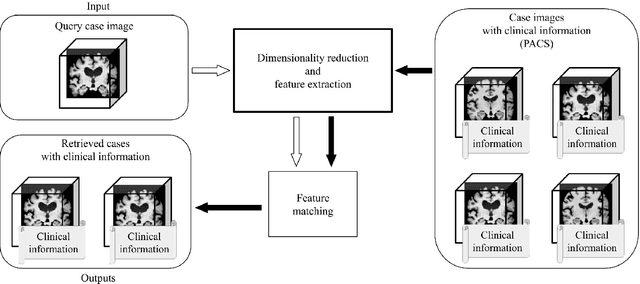Shingo Fujiyama
Efficient feature embedding of 3D brain MRI images for content-based image retrieval with deep metric learning
Dec 04, 2019



Abstract:Increasing numbers of MRI brain scans, improvements in image resolution, and advancements in MRI acquisition technology are causing significant increases in the demand for and burden on radiologists' efforts in terms of reading and interpreting brain MRIs. Content-based image retrieval (CBIR) is an emerging technology for reducing this burden by supporting the reading of medical images. High dimensionality is a major challenge in developing a CBIR system that is applicable for 3D brain MRIs. In this study, we propose a system called disease-oriented data concentration with metric learning (DDCML). In DDCML, we introduce deep metric learning to a 3D convolutional autoencoder (CAE). Our proposed DDCML scheme achieves a high dimensional compression rate (4096:1) while preserving the disease-related anatomical features that are important for medical image classification. The low-dimensional representation obtained by DDCML improved the clustering performance by 29.1\% compared to plain 3D-CAE in terms of discriminating Alzheimer's disease patients from healthy subjects, and successfully reproduced the relationships of the severity of disease categories that were not included in the training.
 Add to Chrome
Add to Chrome Add to Firefox
Add to Firefox Add to Edge
Add to Edge